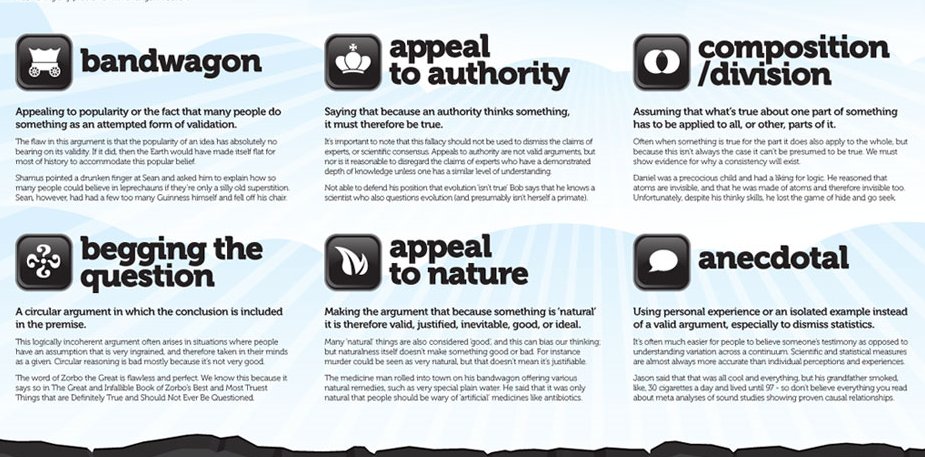
A logical fallacy is, simply put, a flaw in reasoning. Often, logical fallacies are tactics that are used in order to bolster arguments that are, otherwise, pretty weak. At worst, they are diversion tactics, which are meant to side-track and derail a conversation. We frequently see them used by politicians, by anti-science denialists, and by, well, pretty much everyone uses them at one point or another.
Notably, someone is not wrong just because they are using a logical fallacy. Sometimes they are helpful and can assist in understanding the meaning or significance of an argument. However, they should not be the only thing that is being used to support the argument.
Maybe take a look at the list below, and see how many everyday fallacies you can come up with. I’ll get us started with a rather common example.
“That’s un-American.”
Politicians frequently use this assertion in order to justify any number of actions (or inactions). And there are a number of problems with this tactic. First, what is “American”? Is it simply anything that exists is America? If so, that kind of renders the term “American” rather meaningless. Second, if something can clearly be identified as being un-American (let’s just use the Great Wall of China for the sake of ease), does that mean that it is necessarily bad? Isn’t it kind of problematic to make anything that is not American (aka un-American) into a pejorative?
Ultimately, the above is an example that is used in politics. However, logical fallacies invade every debate (social, economic, political, scientific…), and all of this is really just about thinking critically. There are good arguments and their are bad arguments, and part of being a good scientist is being able to weigh an argument, tell what evidence is acceptable, and being able to think critically about (be justifiably skeptical of) the information and ideas that one is presented with. So give this graph a look, and see how many common fallacies you can think of. Then scroll down to see some of the more common bad arguments that people use in the sciences (click for a larger version).
Larger version

Common Bad Arguments in Science
